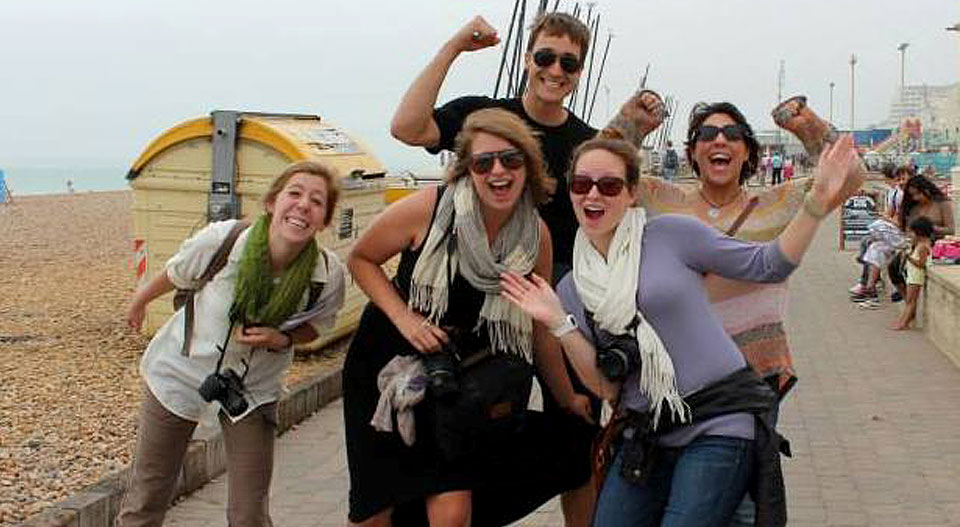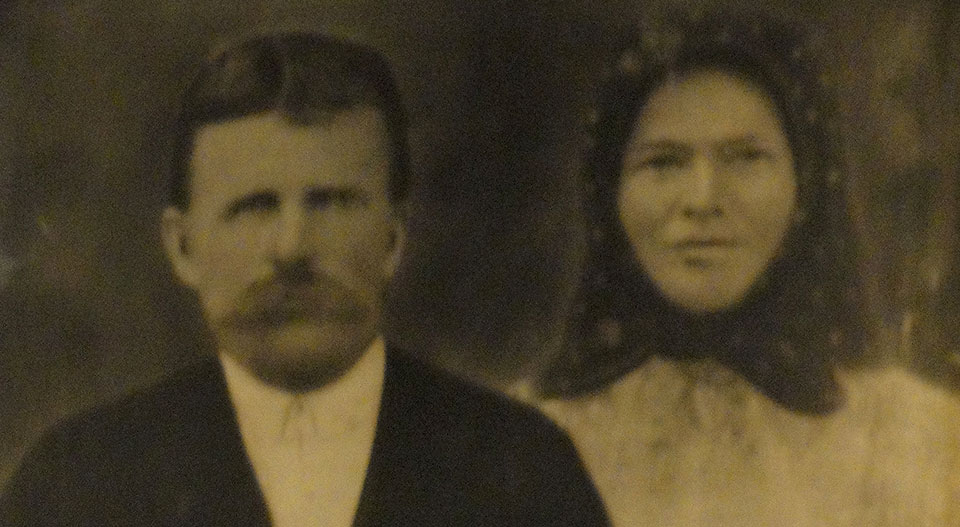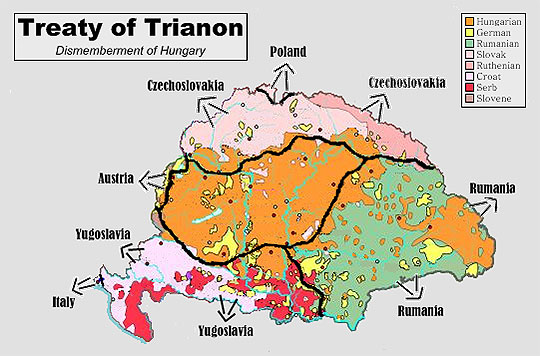

If I was a Hungarian my name would be Sandor. I would be tall, dark and masculine with hairy arms and a Cro-Magnon forehead. I would smile occasionally: a repressed smile, because no matter how good things seemed there would always be this sense of impending doom–a calamity lurking around the corner. I would be mournful about the past and generally skeptical about the future. It’s the Hungarian way.
As Americans, we don’t give history too much stake. Our recap of American history goes something like, “Well, at some point we drove the Indians out, kicked the Brits back to England and now we’re chillin’ here with all this land. It’s all good!” We generally don’t think much about our nation’s history; don’t give it much stake in the day-to-day goings-on. This doesn’t seem to be the case with Hungarians though. It’s surprisingly common, in general conversation, for a college-aged Hungarian to gaze forlornly into the distance and lament, “Our Empire used to be much bigger, you know…” or “That was before the flood…” These things weigh on the mind of the Hungarian–a lingering pessimism hovering like a dark cloud over a nation of Charlie Browns. Isn’t it crazy to think that peoples’ daily lives and outlooks could be affected by history, of all things?
 So how could this be? I believe the explanation of this phenomenon lies in a study of significant historical events of Hungary. One date commonly cited is 1526, when a monumental battle was lost to the Turks, marking the beginning of 150 years of Turkish occupation. (Think about this: when is the last time you heard a young American cite a historical date, any date, in a casual conversation? It happens all the time here!) Another one is 1918, when, following the loss of WWI, Hungary lost 2/3 of its land and 1/3 of its population in the Trianon Treaty.
So how could this be? I believe the explanation of this phenomenon lies in a study of significant historical events of Hungary. One date commonly cited is 1526, when a monumental battle was lost to the Turks, marking the beginning of 150 years of Turkish occupation. (Think about this: when is the last time you heard a young American cite a historical date, any date, in a casual conversation? It happens all the time here!) Another one is 1918, when, following the loss of WWI, Hungary lost 2/3 of its land and 1/3 of its population in the Trianon Treaty.
In addition to being long-lived, the critical historical events of Hungary stretch to the very recent past. They were invaded and occupied by different nations in World War II. After liberating Hungary from Nazi Germany rule in 1945, the Soviets occupied the nation until 1990! Think about that … 45 years of Communist occupation. People the same age as my parents and teachers grew up learning Russian and pledging allegiance to Communism. Their independence was taken from them, their homeland occupied. These are things most Americans simply couldn’t fathom.
There’s a story I find fascinating which exemplifies this point quite well. A Hungarian student told me that family dinners at her household usually progress something like this. They start by discussing current events, e.g. the Russia/Ukraine situation. At some point Grandpa goes into a tangent, arguing that conditions were much better under Soviet Rule. Dad half agrees; the younger generation disagrees vehemently and a whole debate breaks out, lasting the duration of the dinner. One time, apparently, her grandfather tipped his wine glass, leaving a puddle of wine on the table. He looked closely at the wine, exclaiming, “My God, that looks like the Old Empire!” The whole family gathered and marveled over this puddle of wine: a puddle that reminded them that things used to be better, the Empire was bigger, and the homeland was free. Would something like this ever happen in the U.S.? Not at my family dinners.
See, my theory is that we Americans are every bit as affected by history as the Hungarians; it’s just that our history played out in a drastically different fashion, manifesting in a drastically different collective mindset. Our fight for independence and freedom shaped a nation of people who pride themselves on individualism: non-reliant and unaffected by outside forces. It would be absolutely counter-intuitive for most Americans to accept the notion that events from the past shape our circumstances and outlooks in the present. But they DO! We walk around Hungary in our bright clothes using words like “Fantastic!” to describe the most mundane of experiences. We struggle laboriously to remain optimistic, never admitting disappointment or depression. We treat the purchase of new clothes like breaking news (okay that’s just the girls, but seriously, they do). We don’t have less issues than the Hungarians; we just approach them from a different perspective, in part because of the differences in the shaping of our respective nations. Our lives are shaped by national history! Isn’t that interesting?
-Lee
Lee Bartnik, a senior at the University of Wisconsin-Stevens Point majoring in dietetics, is blogging about his study abroad experience in Hungary.
